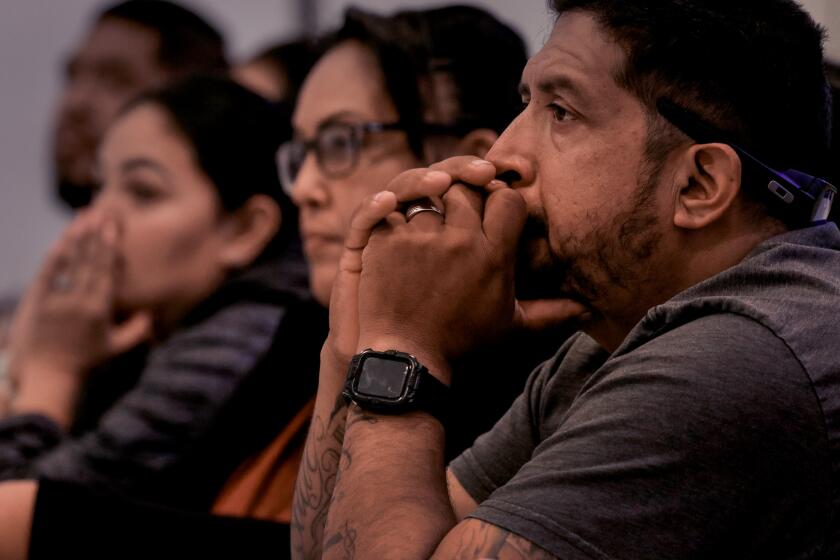LAPD, not ICE
On March 12, Juan Garcia, a 53-year-old homeless man, was brutally murdered in an alley off 9th and Alvarado streets in the Westlake District, just west of downtown Los Angeles. At first, the police were stumped; there were no known witnesses and few clues. Then a 43-year-old undocumented immigrant who witnessed the crime came forward and told the homicide detectives from the Rampart station what he saw. Because of his help, a suspect was identified and arrested a few days later while hiding on skid row. Because the witness was not afraid to contact the police, an accused murderer was taken off the streets, and we are all a little bit safer. Stories like this are repeated daily in Los Angeles.
Keeping America’s neighborhoods safe requires our police forces to have the trust and help of everyone in our communities. My nearly 40 years in law enforcement, and my experience as police commissioner in Boston and New York City and as chief in Los Angeles, have taught me this.
Yet every day our effectiveness is diminished because immigrants living and working in our communities are afraid to have any contact with the police. A person reporting a crime should never fear being deported, but such fears are real and palpable for many of our immigrant neighbors.
This fear is not unfounded. Earlier this month, Homeland Security Secretary Janet Napolitano announced that 11 more locations across the United States have agreed to participate in a controversial law enforcement program known as 287(g). The program gives local law enforcement agencies the powers of federal immigration agents by entering into agreements with Homeland Security’s Immigration and Customs Enforcement, or ICE. Although many local agencies have declined to participate in 287(g), 67 state and local law enforcement agencies are working with ICE, acting as immigration agents.
Some in Los Angeles have asked why the LAPD doesn’t participate. My officers can’t prevent or solve crimes if victims or witnesses are unwilling to talk to us because of the fear of being deported. That basic fact led to the implementation almost 30 years ago of the LAPD’s policy on immigrants, which has come to be known as Special Order 40. The order prohibits LAPD officers from initiating contact with someone solely to determine whether they are in the country legally. The philosophy that underlies that policy is simple: Criminals are the biggest benefactors when immigrants fear the police. We can’t solve crimes that aren’t reported because the victims are afraid to come forward to the police.
The idea of engaging all members of the public in reporting crime and identifying criminals not only helps us with short- and medium-term goals of reducing crime; it helps improve relations with community members. We all have an interest in helping our young people develop into healthy, educated and law-abiding adults. Breeding fear and distrust of authority among some of our children could increase rates of crime, violence and disorder as those children grow up to become fearful and distrustful adolescents and adults. That is why the Los Angeles Police Department has not participated in 287(g) and the federal government is not pressuring the department to do so.
Americans want a solution to our immigration dilemma, as do law enforcement officials across this nation. But the solution isn’t turning every local police department into an arm of Immigration and Customs Enforcement.
The Police Foundation published a report in April titled “The Role of Local Police: Striking a Balance Between Immigration Enforcement and Civil Liberties.” The report confirms that when local police enforce immigration laws, it undermines their core public safety mission, diverts scarce resources, increases their exposure to liability and litigation, and exacerbates fear in communities that are already distrustful of police.
The report concluded that to optimize public safety, the federal government must enact comprehensive immigration reform. As police chief of one of the most diverse cities in the United States, and possibly the world, I agree. As I leave my position as leader of the LAPD, I will encourage my successor to adopt the same rigid attitude toward keeping Special Order 40 and keeping the mission of the men and women of the department focused on community cooperation instead of community alienation.
Working with victims and witnesses of crimes closes cases faster and protects all of our families by getting criminals off the street. We must pass immigration reform and bring our neighbors out of the shadows so they get the police service they need and deserve. When officers can speak freely with victims and witnesses, it goes a long way toward making every American neighborhood much safer.
More to Read
Sign up for Essential California
The most important California stories and recommendations in your inbox every morning.
You may occasionally receive promotional content from the Los Angeles Times.










